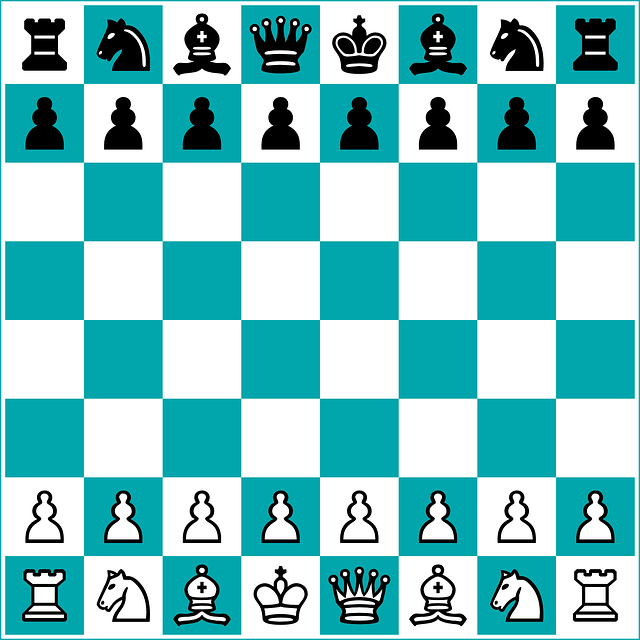Chess and Tricks
: The Royal Game: Chess as a Fascinating Hobby
Introduction:
Chess is called Game of Concentration . Chess is more than just a game; it's an ancient and captivating hobby that has been enjoyed by people of all ages for centuries. This timeless board game is not only a test of strategic thinking but also a source of joy and entertainment for millions around the world.
The wonderful
world of chess as a hobby and discover why it continues to capture the hearts
and minds of enthusiasts.
The
Basics of Chess:
Chess
is played on an 8x8 square board, and each player starts with 16 pieces: a
king, a queen, two rooks, two knights, two bishops, and eight pawns. The goal
is simple – checkmate your opponent's king, which means putting the king in a
position where it is under attack and cannot escape capture.
The Joy of Learning:
One
of the most appealing aspects of chess is its accessibility. You can learn the
basic rules in a short amount of time, and with practice, you can delve into
more advanced strategies. Chess is a hobby that rewards both beginners and
seasoned players, offering endless opportunities for improvement and growth.
Strategic Thinking:
Chess
is often described as a "mental sport" because it requires strategic
thinking, planning, and foresight. Players must anticipate their opponent's
moves while formulating their own strategy. This not only sharpens cognitive
skills but also enhances decision-making abilities.
The Beauty of Chess:
Chess
is not just about winning or losing; it's about the beauty of the game. From
elegant openings to complex endgames, every move in chess is a piece of a
grand, unfolding story. The game has inspired countless works of art,
literature, and even movies, showcasing its enduring cultural significance.
Community
and Camaraderie:
Chess
is a social hobby that brings people together. Whether played with friends,
family, or at a local chess club, the game fosters camaraderie and friendly
competition. Tournaments and online platforms provide opportunities to connect
with fellow enthusiasts from around the globe, making chess a truly global and
inclusive hobby.
Educational
Benefits:
Beyond
its entertainment value, chess offers numerous educational benefits. Studies
have shown that regular chess play can improve concentration, memory, and
problem-solving skills. It's an excellent tool for teaching patience, resilience,
and the ability to learn from mistakes – valuable life skills that extend
beyond the chessboard.
A Game for All Ages:
Chess
is a hobby for everyone, regardless of age. Children can start learning the
game at an early age, developing critical thinking skills in a fun and engaging
way. Adults can enjoy the mental stimulation and stress relief that chess
provides. It's a hobby that can be enjoyed throughout a lifetime, adapting to
different skill levels and interests.
Expanding Horizons with Chess Variants:
As
if the traditional game of chess isn't captivating enough, there are numerous
variants that add exciting twists to the classic rules. From faster-paced games
like blitz and bullet chess to unique variations such as three-check and
bughouse chess, enthusiasts can explore a wide range of playing styles to keep
the experience fresh and dynamic.
Chess
Variants:
1. Blitz Chess:
This fast-paced variant limits each player's total time for
the game, often resulting in quick, intense matches that require rapid
decision-making.
2. Bullet Chess:
Taking speed to the extreme, bullet chess imposes even
stricter time constraints, with each player having just a minute or less for
the entire game.
3. Three-Check Chess:
Instead of focusing solely on
checkmate, players in this variant aim to deliver check to their opponent three
times, adding an extra layer of strategy.
4. Bughouse Chess:
A team-based variant where two-player teams compete
simultaneously on adjacent boards, with captured pieces passed to teammates for
redeployment.
5. Chess960:
Also known as Fischer Random Chess, Chess960 shuffles the
starting positions of the back-rank pieces, introducing an element of
unpredictability to the game.
6. Atomic Chess:
In this explosive variant, capturing a piece results in a
'nuclear' explosion, eliminating surrounding pieces (except pawns) and adding a
unique tactical dimension.
Benefits
of Chess Variants:
Engaging
in chess variants provides players with a diverse and dynamic experience. These
adaptations cater to different preferences and skill levels, keeping the game
accessible and enjoyable for all. Additionally, exploring variants can enhance
adaptability, creativity, and the ability to think on one's feet.
The Digital Age: Online Chess Platforms
In
today's interconnected world, chess has seamlessly transitioned into the
digital realm. Online platforms offer a convenient and accessible way for
players to engage in matches, learn from tutorials, and connect with opponents
worldwide. Websites and apps provide a variety of game modes, allowing
enthusiasts to choose the pace, time controls, and opponents that suit their
preferences.
Chess
Engines and Learning Tools:
Chess
enthusiasts can take advantage of powerful chess engines and learning tools
available online. These tools analyze games, suggest optimal moves, and offer
interactive lessons to help players improve their skills. This marriage of
technology and tradition has democratized chess education, making it more
accessible to a broader audience.
Inclusivity
and Global Connection:
The online chess community is a melting pot of diverse players, fostering inclusivity and global connection. Regardless of geographical location, language, or background, players can come together to share their love for the game, learn from each other, and compete in a virtual space that transcends borders.
Mastering chess requires strategic thinking,
tactical awareness, and a deep understanding of the game. While there's no
substitute for practice and study, here are some quick and essential chess
tricks that can give you an edge:
1. Control the Center:
·
Occupy the central
squares (d4, d5, e4, e5) early in the game. This provides greater mobility for
your pieces and limits your opponent's options.
2.
Develop Your Pieces:
·
Move your knights and
bishops early to open up lines of attack and defense. Aim for efficient development
to avoid falling behind in the opening.
3.
King Safety:
·
Castle early to
safeguard your king. Castling also connects your rooks, making them ready for
action.
4.
Pawn Structure:
·
Understand the
importance of pawn structures. Create pawn chains, avoid isolated pawns, and be
mindful of weaknesses in your opponent's pawn structure.
Double
Attacks:
·
Look for opportunities
to create double attacks, where one move simultaneously threatens two enemy
pieces. This can lead to material gain.
6.
Pin
and Fork:
·
Utilize pins to
immobilize your opponent's pieces, and forks to attack two pieces at once,
forcing your opponent into difficult choices.
7.
Discovered Attacks:
·
Use discovered attacks
by moving one piece to reveal an attack by another piece. This can catch your
opponent off guard.
8.
Overloading:
·
Identify overloaded
pieces in your opponent's position. An overloaded piece is one that has
multiple responsibilities and may crumble under pressure.
9.
Zwischenzug
(Intermediate Moves):
·
Insert unexpected
intermediate moves to disrupt your opponent's plans. These moves can create
complications and seize the initiative.
Endgame
Basics:
· Learn basic endgame techniques. Understanding how to checkmate with a king and a rook against a king or how to convert an advantage in a pawn endgame is crucial.
Time
Management:
·
Manage your time
wisely. Be aware of the clock and allocate time based on the complexity of the
position. Avoid time pressure.
.
Analyze
Your Games:
·
Review your games,
especially losses. Identify mistakes, missed opportunities, and patterns in
your play to continually improve.
Remember, becoming proficient in chess is a
journey that involves continuous learning and practice. These tricks serve as a
starting point, but consistent study and application of strategic principles
will elevate your game over time.
Conclusion:
Chess, both in its traditional form and through its various exciting variants, remains a timeless and inclusive hobby. From the simplicity of the classic game to the dynamic challenges presented by its adaptations, chess continues to capture the imagination of people worldwide.
As technology intertwines with this ancient pastime, the chess community thrives, creating new opportunities for learning, connection, and enjoyment. So, whether you're moving pieces on a physical board or navigating the virtual chess landscape, the game's enduring appeal ensures that every move is a step into a world of strategic brilliance and endless possibilities.















Comments
Post a Comment